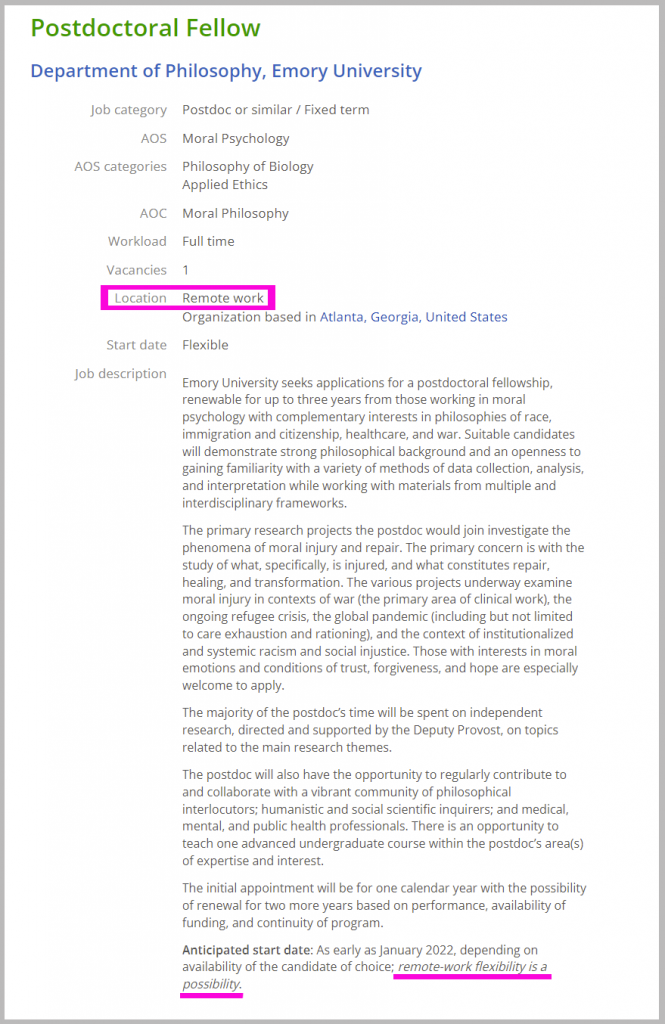You can view the full ad at PhilJobs. If you know of other jobs in academic philosophy offering similar options, please let us know about them.
Adding a remote work option certainly makes positions more accessible—to people around the world for whom moving would be impossible or extremely burdensome, to some disabled people with conditions that make in-person work challenging, and to those with caregiving responsibilities that make working outside the home difficult, for example—and that speaks in its favor.
Here’s one indication: the season’s first and so far only (to my knowledge) ad for a research position in philosophy that tells applicants: “remote-work flexibility is a possibility.” The position is a postdoctoral fellowship “at” Emory University:

The pandemic has shown that we can have deep engagement with colleagues through remote means. Of course, the basic tools were already available earlier, but the broader campus readiness and wider array services were lacking. It is now possible to have more and more connections with others on campus without actually having to be on campus. I think we’re already seeing fundamental changes in the workforce, with new ways to participate and new expectations among employees. Faculty life—our research time and how we organize our teaching and learning with students—is also changing. Ultimately, I think this will bring new opportunities all around.
At the same time, it seems we wouldn’t want everyone in an academic department working remotely, if we could avoid that — right? So one challenge will be to figure out how institutions can offer remote work as an option for individuals to make use of, without it being an option that is exercised to an extent threatening to the goods provided by having people work in the same physical space. Discussion welcome.

How will remote working in academia spread beyond the pandemic circumstances that familiarized so many of us with it?
UPDATE: HPS Bloomington tweets in reply: “Not quite. Depends on what is meant by remote. Not possible for non-US citizens in order to comply with work visa regulations. You have to be in located in the US. So not remote as in home country. You *can* sometimes get special accommodations also with work visas. But hell of a paper work. Hardly any US department/group does that.” I’m not familiar with the law on this; comments from those knowledgeable about this issue would be appreciated.
I wanted to be able to attract the philosopher who is right for the project, regardless of where she, he, or they might be. What matters is that the person is prepared, ready, and eager. If they are able and want to be in Atlanta and on our campus, we’ll welcome them. If they can’t be here—or need a flexible arrangement—but can still help move the projects forward, then that’s what really matters.
I asked Christa Acampora, the philosopher at Emory serving as the principal investigator on the project on which the postdoc would be working, about the decision to include a remote work option for the position. She said:



